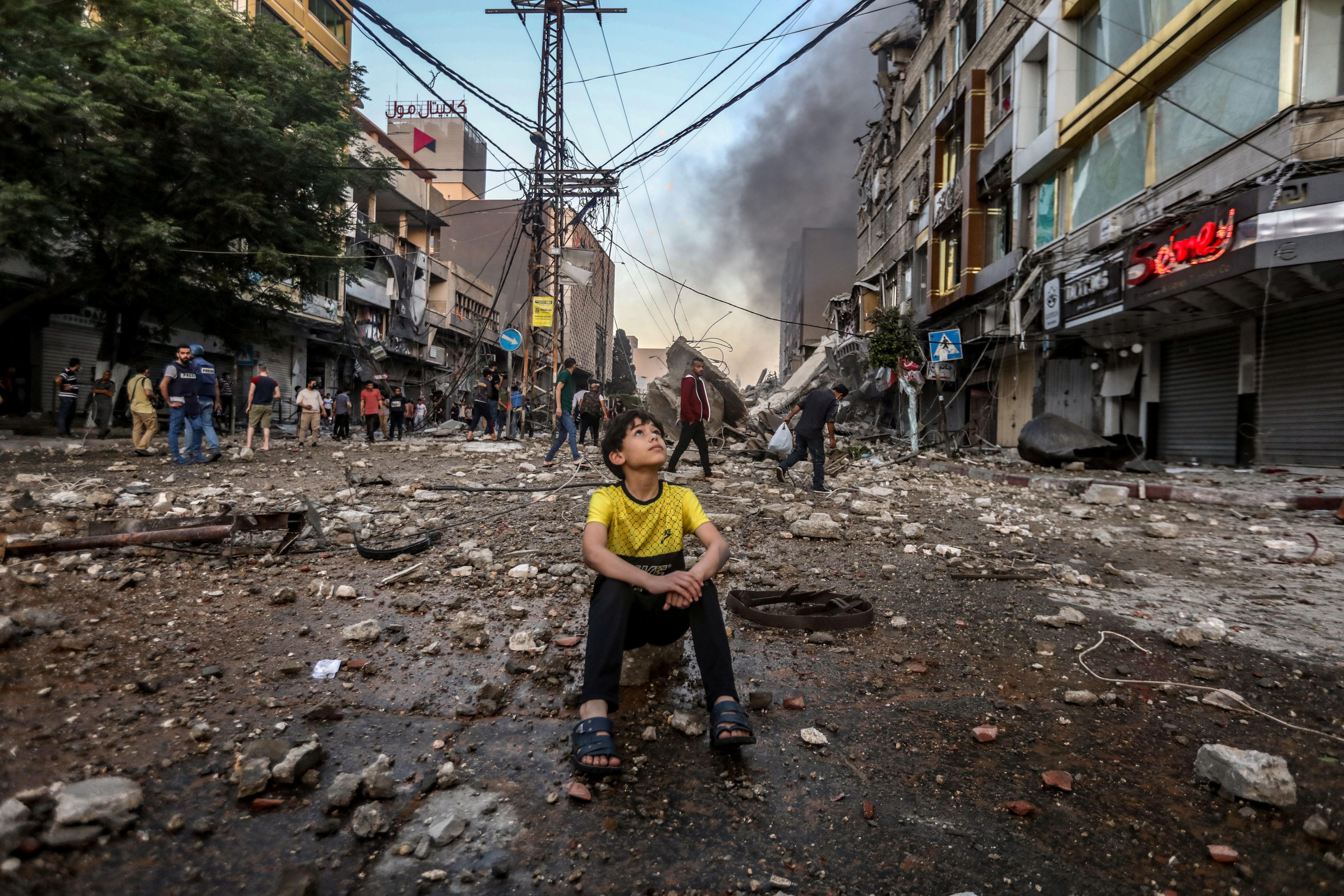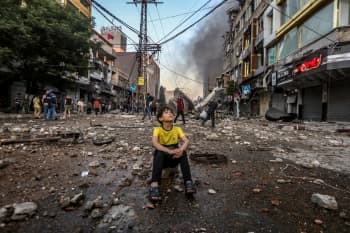EXPLOSIVE WEAPONS IN POPULATED AREAS

What is the problem?
Explosive weapons kill, injure, damage, and destroy using blast and fragmentation from the detonation of explosives. This broad category of weapons includes mortars, missiles, rockets, artillery shells, and aircraft bombs, as well as improvised explosive devices (IEDs). Particularly when used in populated areas, these weapons inflict severe and long-term suffering on civilians.
Of great concern are explosive weapons with a wide-area impact. The imprecise nature of many of the delivery systems, density of civilians or civilian objects and sheer size of the explosive charge will impact a wide area and cause immediate and long-term harm, often well beyond the intended target. The wide-area impact means that they are unfit for use in urban areas.
Each year, tens of thousands of civilians are killed or injured by explosive weapons in populated areas. Due to the interconnected nature of towns and cities, still more civilians are affected by damage to vital infrastructure such as schools, hospitals, housing, and water and sanitation systems. These reverberating effects are directly linked to the use of explosive weapons in populated areas and cause further suffering, displacement, economic loss, deteriorating health systems and negatively affects people’s human rights.
Action on Armed Violence estimate that more than 90 % of the casualties from the use of explosive weapons in populated areas in the last decade were civilians. This is a totally unacceptable level of civilian harm, and therefore concrete action must be taken to improve civilian protection, among other things by avoiding the use of explosive weapons with wide-area impact in populated areas.
What is the current situation?
With dreadful humanitarian consequences from armed conflicts in places like Syria, Yemen, Afghanistan, Gaza, Somalia and Ukraine and other placed, urgent action is needed. The signing of the Political Declaration on Strengthening the Protection of Civilians from the Humanitarian Consequences Arising from the Use of Explosive Weapons in Populated Areas (EWIPA declaration) in 2022 is an important milestone in this regard. The political declaration, signed by more than 80 states, acknowledges the humanitarian harm caused by EWIPA, calls for concrete action in order to improve protection of civilians, assist victims, share and collect data on the consequences of weapons use and implement the declaration in good faith by meeting regularly.
The declaration goes beyond calling for compliance with the baseline international humanitarian law in committing endorsing states to take additional measures to enhance protection. NPA believes the declaration can help implement IHL commitments and if implemented effectively, it has the potential to significantly improve the situations for civilians affected by wars and conflicts. Words must now be translated into action that leads to improved civilian protection.
What is NPA’s call?
NPA calls on parties to conflict to avoid the use of explosive weapons with wide-area impacts in populated areas as a matter of policy. States that have not yet signed the EWIPA declaration should do so without delay.
Signatory states should immediately review and assess current military policies and practices in order to improve protection of civilians in military operations. States must better understand and account for the foreseeable direct and indirect effects of explosive weapons, on civilians and the environment alike.
Furthermore, collecting, analysing and sharing data on weapons use and consequences will help humanitarian workers access people in need, and understand the impact of explosive weapons. It will for example facilitate the work of clearance operators like NPA.
What does NPA do?
NPA is a founding member of INEW and a member of the INEW Steering Group, and thus works at the core of international NGO coalition efforts to stigmatise the use of explosive weapons in populated areas and promote the development/implementation of stronger international standards.
In the coming years, NPA will work hard to hold states accountable to the commitments in the EWIPA declaration and to maximise its potential. NPA will keep the issue on the agenda and engage in a constructive dialogue with states on the implementation of the EWIPA declaration with the continuously improved protection of civilians.
In line with our tradition of working with policy and operational issues in parallel, NPA has developed an operational response to the severe protection challenges civilians face from the use of for example EWIPA: Conflict Preparedness and Protection (CPP). This programme seeks to empower civilians with tools and knowledge in order to be better protected against EWIPA and other conflict related threats. CPP contains a preparedness component, advice on safer behaviour during an attack, and incorporates safety messages on unexploded ordnance. While policy changes are urgently needed to protect civilians, so are concrete activities on the ground.

